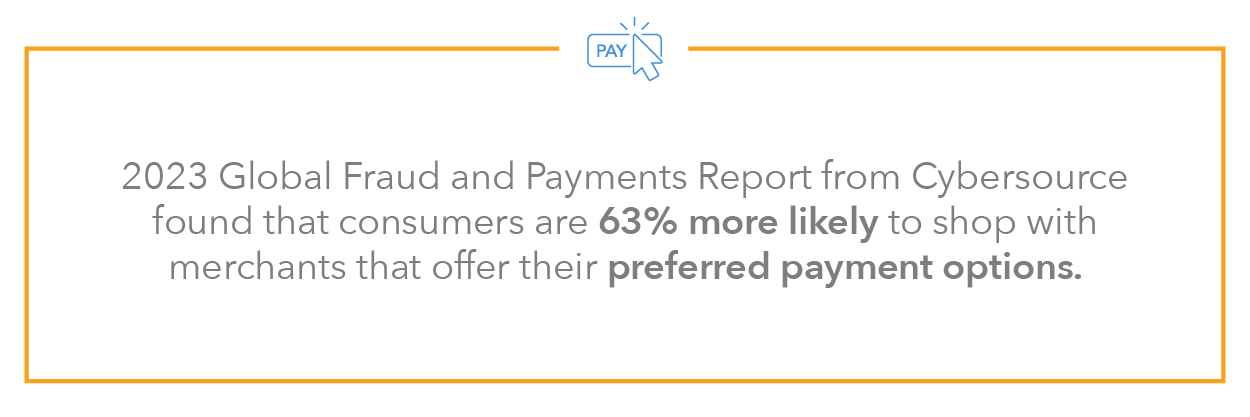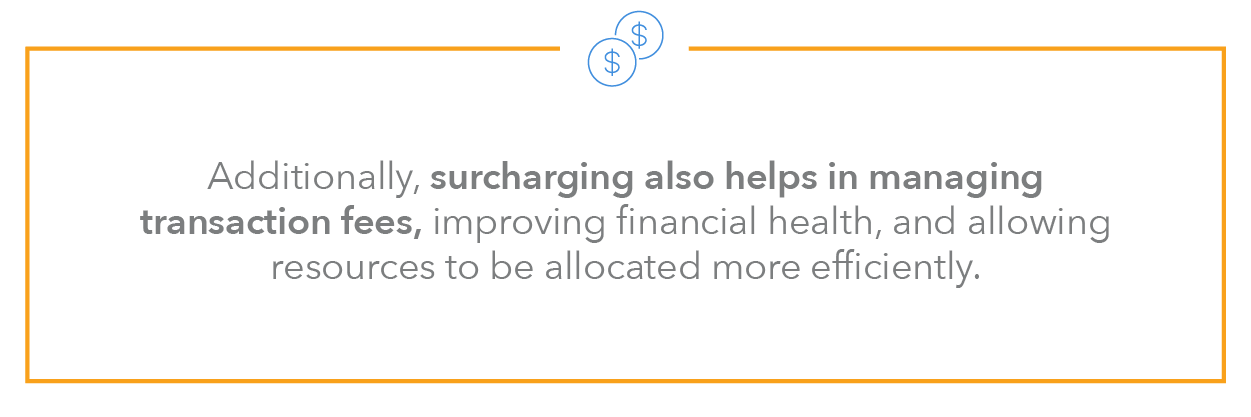Billing and Payments
Credit Card Surcharge Processing: What CPAs and Accountants Need to Know

In today's digital age, accepting credit cards isn't just a convenience—it's a must-have for a frictionless client experience. While most businesses want to offer this payment flexibility to their clients, some are unable to cover credit card processing fees and maintain necessary profit margins. That's where surcharging comes in. Surcharging allows businesses to cover those fees without taking them all on themselves—passing on credit card fees to customers.
However, navigating the complexities of surcharge regulations and laws can be challenging, and failing to meet them can be detrimental. Relying on the right software to help you implement surcharging practices can help you streamline your payment process and ultimately be great for your clients.
In this article, we’ll aim to cover everything you need to know to successfully navigate surcharging, including:
- What is a surcharge?
- The benefits of utilizing surcharging
- Credit card surcharging laws by state and rules to follow
- How to implement surcharging in a way that helps you maximize your time and scale growth
What is a Credit Card Surcharge?
What is a surcharge? Well, in the context of credit cards, surcharging is defined as adding a percentage-based fee—generally up to 3%—on credit card transactions to recoup payment processing costs. The practice became permissible to merchants in 2013 in the wake of a class action lawsuit against Visa and Mastercard.
It’s important to note that a surcharge (or a cc surcharge) is distinct from a convenience fee, which is a relatively older but similar term in the credit card lexicon.
Additionally, it should be noted that debit card surcharge laws differ from credit card surcharge laws: You cannot surcharge debit payments, only credit card payments. Fortunately, a debit and credit card processing solution such as CPACharge will flag debit payments to help you recognize which payments can and cannot be surcharged.
Businesses should ensure that surcharges are recorded and reported in accordance with GAAP to maintain accurate financial records and comply with accounting standards.
How Can Surcharging Benefit Your Business?
Establishing surcharging practices benefits your business in several ways. As mentioned above, surcharges help to offset the costs of processing credit cards—and accepting credit card payments is expected by most consumers in today’s digital-first world.

In fact, the 2023 Global Fraud and Payments Report from Cybersource found that consumers are 63% more likely to shop with merchants that offer their preferred payment options. Though processing those credit cards costs you, not accepting them will likely cost you clients. Surcharging can negate this cost while still allowing you to provide convenient payment options.

Additionally, surcharging also helps in managing transaction fees, improving financial health, and allowing resources to be allocated more efficiently. Another benefit of surcharging is automating payment processes, enabling businesses to focus more on building customer relations and scaling operations.
Credit Card Surcharge Laws by State
The practice was previously outlawed in many states, including Texas and California. However, these laws were challenged in such states, and other states have indicated they may be unenforceable. Today, surcharging is effectively outlawed as an anti-consumer practice in four states (Connecticut, Maine, Massachusetts, and New York) and Puerto Rico. Below we list and link to the credit card surcharge laws by state.
*Note: Surcharges are governed by both state law and card brand rules (like those published by Visa and Mastercard), each of which is subject to change. The following list, updated as of February 2024, provides CPAs with updated information on the legal status of credit card surcharges specifically based on state law. *
Alabama:
- Surcharge Prohibited: No
- Resources: Alabama Attorney General
Alaska:
- Surcharge Prohibited: No
- Resources: State of Alaska Department of Law
Arizona:
- Surcharge Prohibited: No
- Resources: Arizona Attorney General
Arkansas:
- Surcharge Prohibited: No
- Resources: Arkansas Attorney General
California:
- Surcharge Prohibited: No
- Resources: California Attorney General
Colorado:
- Surcharge Prohibited: No
- Resources: Colorado Attorney General
Connecticut:
- Surcharge Prohibited: Yes
- Resources: Connecticut Attorney General
Delaware:
- Surcharge Prohibited: No
- Resources: Delaware Attorney General
Florida:
- Surcharge Prohibited: No
- Resources: Florida Attorney General
Georgia:
- Surcharge Prohibited: No
- Resources: Georgia Attorney General
Hawaii:
- Surcharge Prohibited: No
- Resources: Hawaii Attorney General
Idaho:
- Surcharge Prohibited: No
- Resources: Idaho Attorney General
Illinois:
- Surcharge Prohibited: No
- Resources: Illinois Attorney General
Indiana:
- Surcharge Prohibited: No
- Resources: Indiana Attorney General
Iowa:
- Surcharge Prohibited: No
- Resources: Iowa Attorney General
Kansas:
- Surcharge Prohibited: No
- Resources: Kansas Attorney General
Kentucky:
- Surcharge Prohibited: No
- Resources: Kentucky Attorney General
Louisiana:
- Surcharge Prohibited: No
- Resources: Louisiana Attorney General
Maine:
- Surcharge Prohibited: Yes
- Resources: Maine Attorney General
Maryland:
- Surcharge Prohibited: No
- Resources: Maryland Attorney General
Massachusetts:
- Surcharge Prohibited: Yes
- Resources: Massachusetts Attorney General
Michigan:
- Surcharge Prohibited: No
- Resources: Michigan Attorney General
Minnesota:
- Surcharge Prohibited: No
- Resources: Minnesota Attorney General
Mississippi:
- Surcharge Prohibited: No
- Resources: Mississippi Attorney General
Missouri:
- Surcharge Prohibited: No
- Resources: Missouri Attorney General
Montana:
- Surcharge Prohibited: No
- Resources: Montana Attorney General
Nebraska:
- Surcharge Prohibited: No
- Resources: Nebraska Attorney General
Nevada:
- Surcharge Prohibited: No
- Resources: Nevada Attorney General
New Hampshire:
- Surcharge Prohibited: No
- Resources: New Hampshire Attorney General
New Jersey:
- Surcharge Prohibited: No
- Resources: New Jersey Attorney General
New Mexico:
- Surcharge Prohibited: No
- Resources: New Mexico Attorney General
New York:
- Surcharge Prohibited: Yes
- Resources: New York Department of State
North Carolina:
- Surcharge Prohibited: No
- Resources: North Carolina Attorney General
North Dakota:
- Surcharge Prohibited: No
- Resources: North Dakota Attorney General
Ohio:
- Surcharge Prohibited: No
- Resources: Ohio Attorney General
Oklahoma:
- Surcharge Prohibited: No
- Resources: Oklahoma Attorney General
Oregon:
- Surcharge Prohibited: No
- Resources: Oregon Attorney General
Pennsylvania:
- Surcharge Prohibited: No
- Resources: Pennsylvania Attorney General
Rhode Island:
- Surcharge Prohibited: No
- Resources: Rhode Island Attorney General
South Carolina:
- Surcharge Prohibited: No
- Resources: South Carolina Attorney General
South Dakota:
- Surcharge Prohibited: No
- Resources: South Dakota Attorney General
Tennessee:
- Surcharge Prohibited: No
- Resources: Tennessee Attorney General
Texas:
- Surcharge Prohibited: No
- Resources: Texas Attorney General
Utah:
- Surcharge Prohibited: No
- Resources: Utah Attorney General
Vermont:
- Surcharge Prohibited: No
- Resources: Vermont Attorney General
Virginia:
- Surcharge Prohibited: No
- Resources: Virginia Attorney General
Washington:
- Surcharge Prohibited: No
- Resources: Washington Attorney General
West Virginia:
- Surcharge Prohibited: No
- Resources: West Virginia Attorney General
Wisconsin:
- Surcharge Prohibited: No
- Resources: Wisconsin Attorney General
Wyoming:
- Surcharge Prohibited: No
- Resources: Wyoming Attorney General
Credit Card Surcharging Rules
If you choose to surcharge, you’re required to follow the rules put in place by each credit card brand. We’ll discuss the most common rules below. Note: This may not be a complete list of all credit card surcharging rules.
Notify the Card Brand of Your Intent to Surcharge
Almost every major card brand requires you to notify them of your intention to surcharge. Most brands have a form you can fill out that’s available on their website. Otherwise, you must provide a written letter to your account representative. CPACharge will initiate this process for you when setting up surcharging, where permitted.
Notify Your Clients of Your Intention to Surcharge
You are also required to notify your customers or clients of your intention to surcharge (as soon as you are eligible to do so). For example, if using an online payment solution, you would have to include language on your payment page that clearly identifies the credit card surcharge before payment is submitted.
Do Not Surcharge More Than the Cost of Your Processing Fee
This rule means that you cannot use surcharging as a means to profit. In general, brand rules limit surcharges to 3% in the U.S. Some states, including Oklahoma, Colorado, and New Jersey have legislation capping the surcharge at less than 3%.
Surcharges Must Be Listed as Separate Line Items
You cannot simply lump your surcharges into each transaction total. Whenever a surcharge occurs, it must be listed separately on each invoice or payment confirmation page.
CPACharge: Streamline Surcharging And Maximize Your Time
Ready to surcharge for success? CPACharge can help you reclaim your time by streamlining manual processes (including surcharging) so you can refocus your time on what matters most—your clients. Book a demo of CPACharge today to make greatness your status quo.


